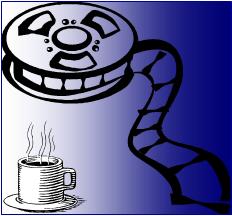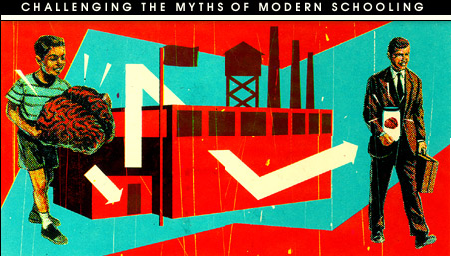

|
 |
The International ____ (7.5/10)
|
Please go to the new Coffee Coaster site implemented more gracefully in Wordpress. This page: http://brianrwright.com/CoffeeCoasterBlog/?p=5862 |
Clive Owen ... Louis Salinger
Naomi Watts ... Eleanor Whitman
Armin Mueller-Stahl ... Wilhelm Wexler
Ulrich Thomsen ... Jonas Skarssen
Brian F. O'Byrne ... The Consultant
Michel Voletti ... Viktor Haas
Umberto Calvini: [In explaining the "true" nature of banking in the world] The IBBC is a bank. Their objective isn't to control the conflict, it's to control the debt that the conflict produces. You see, the real value of a conflict, the true value, is in the debt that it creates. You control the debt, you control everything. You find this upsetting, yes? But this is the very essence of the banking industry, to make us all, whether we be nations or individuals, slaves to debt.
Clive Owen seems to gravitate toward dark, serious roles, e.g. Children of Men, The Croupier, both reviewed on these pages. You're thinking, "Hey, man, get a shave." And for chrissakes, smile a little. In The International, Clive continues in the serious vein, and even though his character, Interpol investigator Louis Salinger, is planted in an uncaring morally gray world, the man is refreshingly passionate about right and wrong... or at least about going after sneaky rich international-banking bastards who kill people to keep people from spilling the beans.
In the subtitle, I contrast this film to the hugely successful and politically uplifting Bourne movies—The Bourne Identity, The Bourne Supremacy, The Bourne Ultimatum—starring Matt Damon: frankly, I was looking forward to some solid realism in The International.
(I mean, come on, in the Ultimatum, Bourne hot wires an Audi A6, then while being shot at by several agents, crouched completely down in the front seat, drives it backwards at max speed off the upper deck of a parking garage, lands three stories below, survives, kicks out the windshield, walks away, immediately hijacks a police cruiser, crashes it into a concrete bridge column at 50 mph, kicks out the windshield, survives, walks away, then ten minutes later, all superficial wounds healed, is cracking a safe in CIA's New York headquarters. I might have gotten some of it backwards. Arnold S. as the non-human Terminator could not do half of these things. Maybe eugenics will yet pan out.)
Ironically, in the original Bourne Identity (2002) movie, Owen is a fellow CIA-ish assassin—those in the know seem to refer to assassins as "assets." (This was four years after his Croupier role.) Can't tell you what happens in the Identity, because I definitely want to review the Bourne movies. I must say, Clive-the-assasin exudes the same dark, serious, even sensitive qualities. Makes you wonder if an actor's agency maintains some sort of master plan. [I submit he's due for a romantic comedy.]
Well, not too much. The realism saves it, and performances by Owen and Watts (who plays a similarly realistic US Department of Justice (DOJ) organizational poobah)
go forward in stellar fashion. I truly like the moral angle that Owens gives the characterization of Salinger; even in the modern context of overwhelmingly ubiquitous government bullcrap in every nook and cranny of every nook and cranny, Owens manages to convey a genuinely caring moralistic sensibility. Watts, too. No small feat.
The plot elements are reasonable, even edifying. I mean, look at the quote above: This is the basic financial libertarian argument: we are in deep doo-doo, John and Jane Doe across the planet, because the central (international) banks have set us up with a debt system that breeds war as the ultimate moneymaker. Who rises to the top in that kind of system? Very good question. Unfortunately, the imagination of the writer of this movie seems limited to the conventional "just a few bad apples at the top."
No way, Jose.
And the writer of The International wants his to have his banker-control fantasy
and eat it, too. If, in fact, the world has been taken over by bad apples, then there really isn't anything Interpol or the US DOJ are going to do about it. Even the dark, serious odd couple of Owen and Watts don't stand a chance of making any difference whatsoever. If the world hasn't been taken over by the bad apples, well, what this particular evil bank (IBBC) is doing would be exceptional enough to be stopped by ordinary people promoting best practices in the banking business itself.
I did like the film for its unpretentious style.
Salinger (Owen) and Whitman (Watts) are the kind of government and quasi-government people we would like to see handling such shenanigans. They're believable. For another thing, the plot makes sense. I mean, usually I have a heckuva time figuring out who's doing what to whom and for what and with whom and when... but in The International, everything lines up straight and comprehensible. Refreshing.
I should point out that there's a long action scene toward the end of the movie that feels wholly inconsistent with the general pace of play of the script. It's as if the writer and director, anticipating the accusation of "boring and realistic," decided to throw in the kitchen sink. For those who watch the movie, please comment to my blog whether you think this scene fits. [First you need to register, then I'll configure you as a contributor so you may post originally.]
Some of us remember the original James Bond movies—Dr. No, From Russia with Love, and Goldfinger—with Sean Connery, Pussy Galore and a gallery of beauties that set unrealistic expectations for a whole generation of pubescent boys (both in terms of what real women look like and what kinds of women we were likely to attract). But, even without the babes, the James Bond character had style, he was a man's man, and we wanted to live that way in a stimulating world like that. What matter that the movies had nothing to do with real post-WW2 intelligence work.
In
1965, The Spy Who Came in from the Cold, a movie starring Richard Burton came out. Talk about throwing a wet blanket on the spy thriller. This film version of John Le Carre's best seller was the realistic antidote to the sensational World of Bond. In not quite so dramatic a fashion, The International contrasts similarly with the Bourne movies. And guess what, I'm still looking forward eagerly to Bourne 4 scheduled for 2011; if The International has a sequel, I believe I'll pass over it in silence.
###

Click banner to order, click here for book review


Click banner to
order, click here
for book review

Click banner to
order, click here
for book review
 |
 |
|||
| |